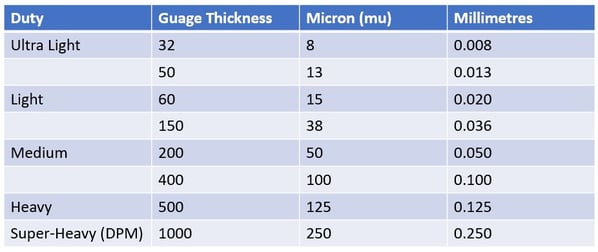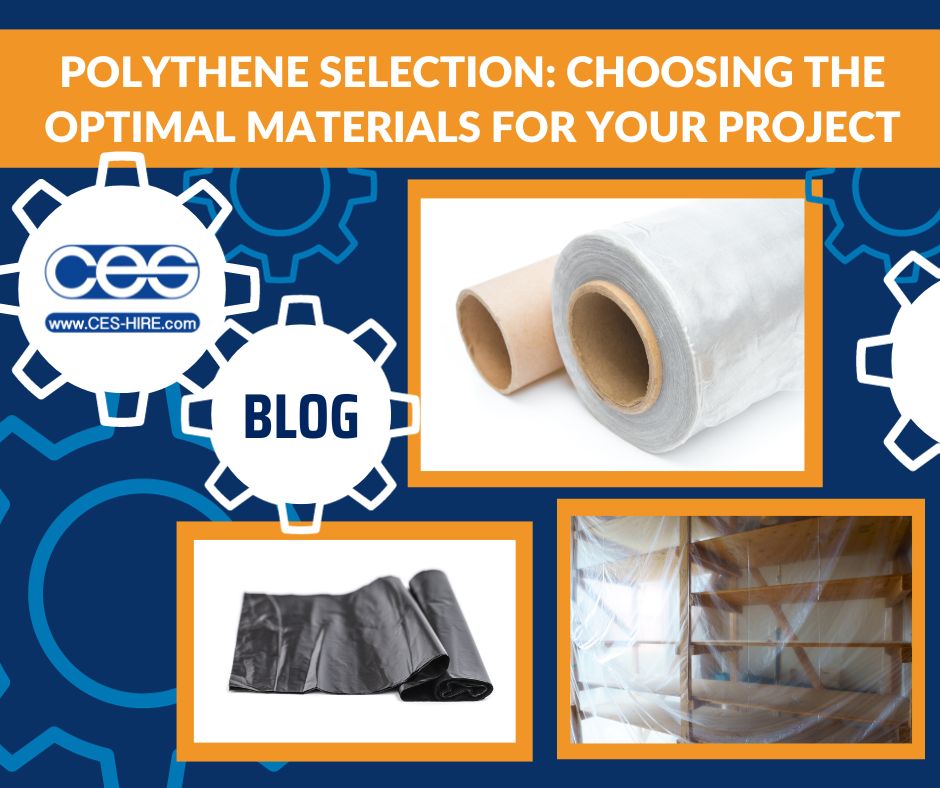Polythene is a popular construction material due to it's versatility and ideal properties for protection. However, with a wide variety of options available in the market, it can be confusing when determining which type of polythene will best suit your specific needs. If microns have you in a muddle and guages have you disengaged, we'll take you through all you need to know so you can make an informed choice that will ensure your project's efficiency and durability.
The Benefits of Polythene
Polythene is an incredibly useful construction material with many benefits including,
- durability
- water resistance
- flexibility
- affordability
- light-weight design
- insulating properties
- protective qualities
- versatility.
Understanding Microns/Guage
The quality of your polythene of course will depend on the microns/guage you select. Microns and guage is simply the unit of measurement for the thickness of the plastic. Guage is the tradition imperial measurement whilst microns is the more modern metric reference. You can work out the microns by dividing the guage by 4. The higher the microns/guage the thicker and more robust your polythene will be. Thinner polyethene (between 8-30 microns) will often be a one use cover to be discarded after use. Using this for certain projects can be risky as it may tear and subsequently allow moisture or debris into unwanted spaces. Thicker polythene ( between 125-300 microns) is extra-strong and tear-resistant. It will cope with more wear and tear and can be used for much longer periods of time or in more challenging conditions. The thicker the polythene the more expensive it will generally become however you will find it lasts a lot longer and can be used multiple times if you are careful when removing and storing.

Uses of Polyethene
Protective Sheeting-With waterproof, flexible and light-weight properties, polythene is ideal for protection within your project. Whether you are painting or plastering, renovating or rendering, polythene will contain unwanted dust and debris as well as stop it spreading. Since it can be cut to size and is flexible it is perfect for protecting immovable furniture and keeping tools, equipment and materials clean and dry (read our earlier blog on storing/protecting your render effectively).
Moisture Prevention- Polythene can be used between layers of insulation to prevent moisture passing through. Damp Proof Membrane (DPM) which is 250microns or more protects the structure from damp and potential mould. DPM will prevent damp penetrating walls, ceiling and floors and are crucial in wet area such as kitchens and bathrooms. It can also act as a waterproof membrane on a roof to prevent leakage.
Weather-Proofing-Polythene will cover openings and exposed areas when projects are taking place in bad weather or are needing a temporary seal. It can act as a temporary roof for up to 6 months protecting the property as well as workers and equipment. If there are delays in installing windows, doors or skylights, polythene can be used as a temporary seal from light winds and rain.
Protecting Concrete during curing- When concrete is poured, it should always be covered until it has cured. Temperature and moisture affects the curing process since it will crack if it cures too quickly. Whilst cracks look rather unsightly, more importantly they can compromise the structural integrity of the building. A layer of polythene acts as a moisture-proof insulator, allowing a more controlled cure. The colour pf your polythene can be important in this case. Light colours reflect the sun so should be used in hot/dry conditions. Dark colours absorb the heat and therefore are better in lower temperatures.
Packaging- Within Construction, parts and materials can often be bulky and packaging solutions can be a little trickier. Polythene is an effective solution to create a protective shipping covering.
Polythene at CES
We offer polythene in three different weights to cover all your construction needs. The TPS clear polythene sheeting is our thinnest option offering a light protection at just 30microns. We then supply a 125microns heavy duty polythene which is more durable for longer/more challenging projects. Finally our 300 micron Damp Proof Membrane is the most robust of our polythene and offers a barrier to moisture entering a property.



